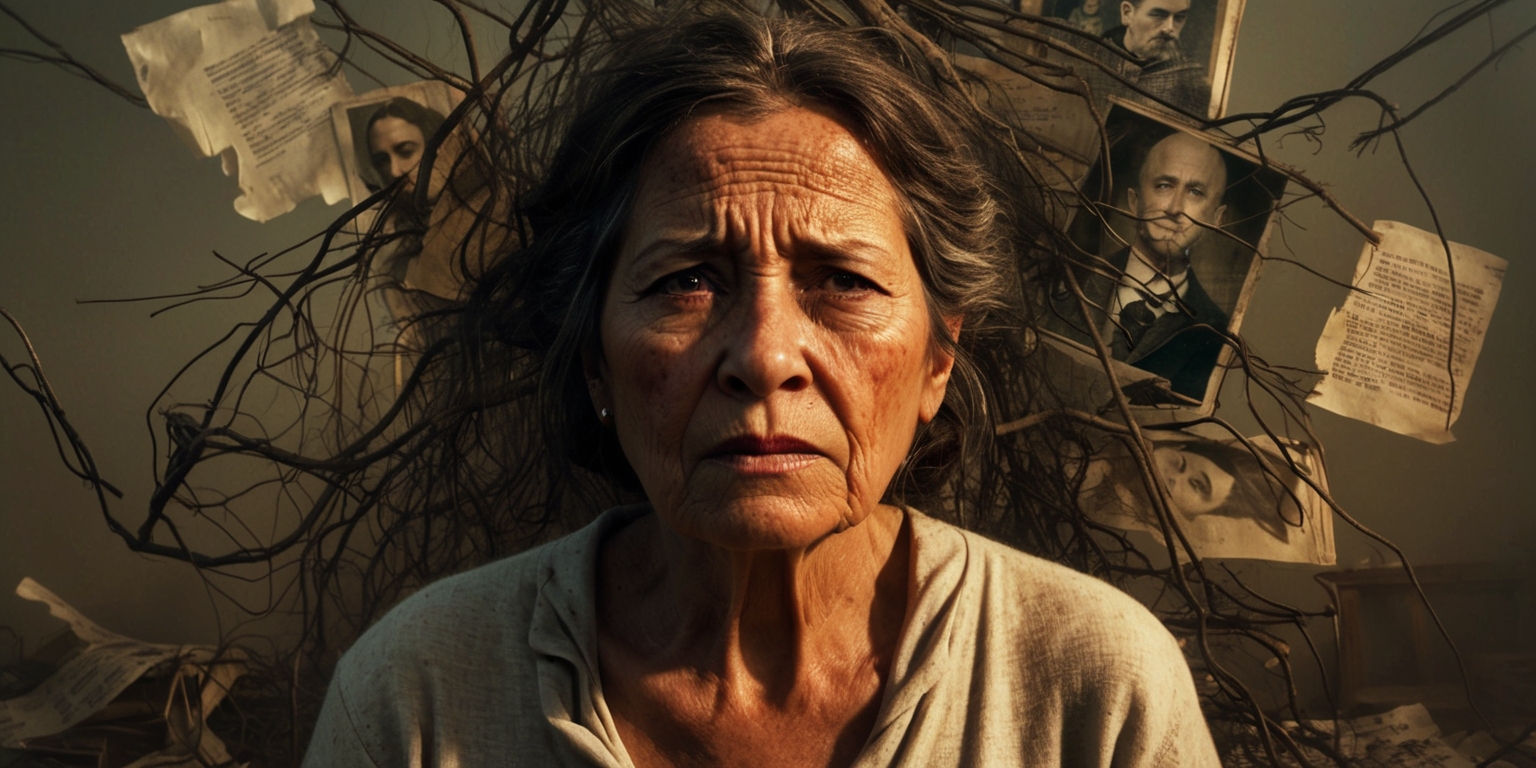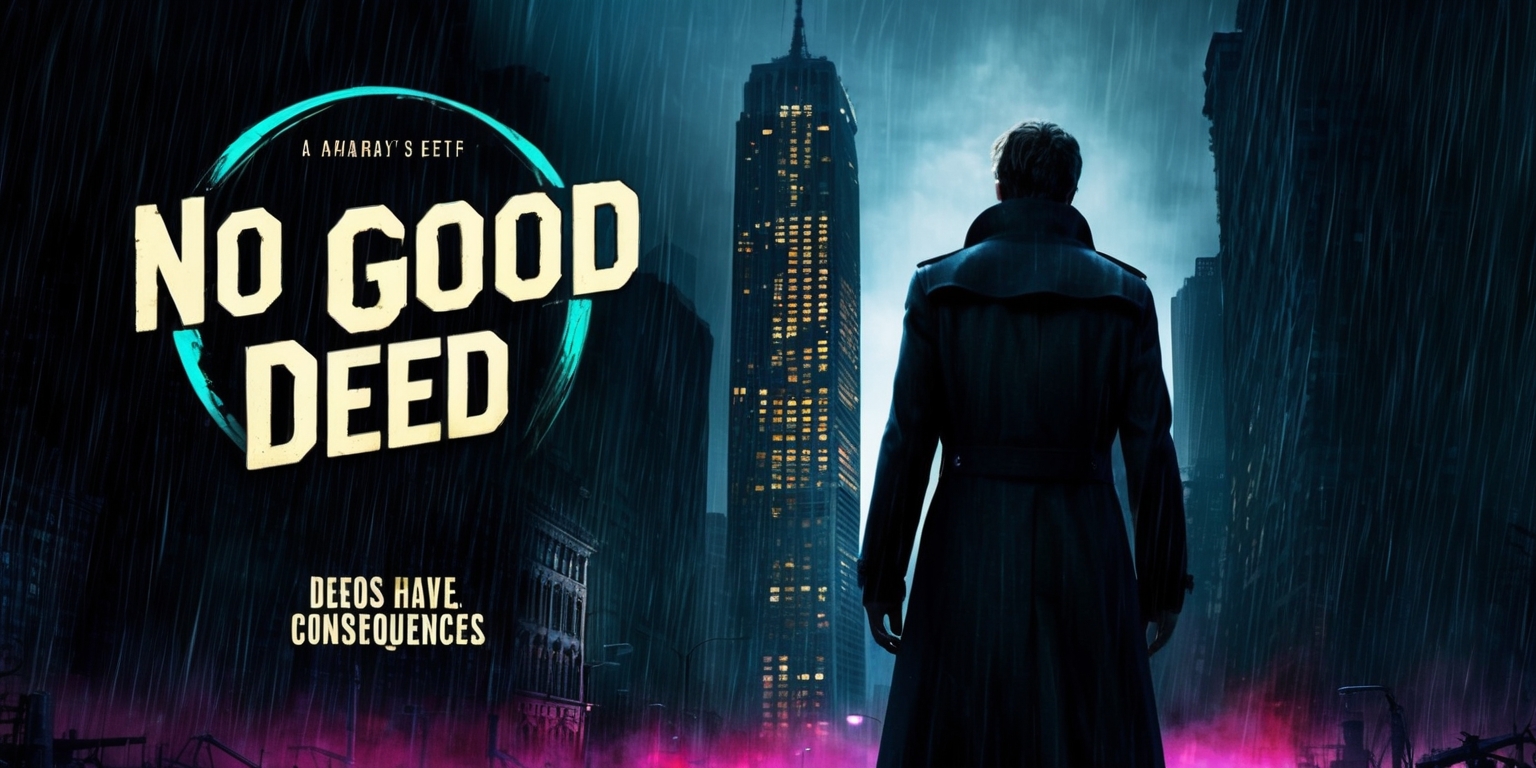Navigating Chaos: A Deep Dive into the Complexities of Family in No Good Deed
- Feb 13, 2025
- 1104

In a world where the lines between familial bonds and personal crises blur, a new series prompts a provocative exploration of what it means to uphold the concept of family. The latest dark comedy drama on Netflix nudges us into the existence of a duo ensnared in a whirlwind of competing desires, hidden secrets, and the relentless pressures of a real estate transaction. Amidst the hustle of property sales and interpersonal drama, viewers are invited to reflect on the deeper implications of loyalty, love, and the lengths to which one will go to safeguard their own family. With a stellar cast at its helm, this series teeters on the edge of brilliance but ultimately struggles to tether its many threads into a cohesive narrative.
No Good Deed: An Overview
The story revolves around Paul and Lydia Morgan, played by the duo of Ray Romano and Lisa Kudrow. They are in the thick of trying to sell their Spanish-style villa nestled in the Los Feliz area of Los Angeles—a stunning home rich with memories but fraught with unspoken tensions. As they navigate this significant life change, the couple finds themselves wrestling with their own unresolved issues. Are they merely posturing for a clean sale, or can this transaction be the lifeline that pulls them back together?
Meet the Competitors
As the Morgans attempt to rid themselves of their property, they encounter three competing couples, each with their own set of challenges and underlying motivations. The intertwining of these multifaceted lives serves to highlight the universal struggles we face, but the rapid-fire storytelling creates a sense of disarray.
The Burden of Complexity
Created and directed by Liz Feldman, the series showcases an ambitious narrative design that crams an extensive array of subplots into a limited number of episodes. Each installment, approximately 30 minutes long, attempts to juggle the larger-than-life circumstances faced by its characters. The sheer multitude of storylines, each marked by its own intensity, ultimately creates a chaotic atmosphere, hindering the viewer's ability to engage fully.
The Consequences of Timing

The eight-episode structure feels insufficient for the range of emotional arcs and character developments presented. While Paul and Lydia are a constant presence throughout, many intriguing storylines of lower-frequency characters get short-circuited, resulting in an uneven viewing experience. Moments of tension build only to be interrupted, leading to a loss of narrative momentum.
Stripped of Potential
Certain arcs introduce compelling premises and conflicts that hint at substantial revelations or confrontations, only to collapse with minimal elaboration. Both quantity and quality of storytelling are overlooked as the series races through an overloaded catalog of events.
Leading the Charge
Fortunately, amid the whirlwind, Paul and Lydia provide a semblance of stability with the strongest character-driven narrative in the series. Their backstory—a murky event tied to their home—creates a sense of foreboding that weaves through their attempts to move forward. The thought of their past provokes moments of desperation, reminding viewers that confronting one's history can be as challenging as entering a new chapter.
The Chemistry of Companionship
While Paul and Lydia's arc packs a more emotional punch, the other couples, while less fleshed out, present their own enjoyable subplot interplays. The chemistry displayed by Sarah and Leslie, played by Poppy Liu and Abbi Jacobson, emerges as a bright spot, skillfully shedding light on Paul and Lydia's secrets. Their exuberance pulls the audience into their camaraderie, even as they search for answers.
A Dependable Ensemble
With seasoned actors such as Luke Wilson and Anna Maria Horsford rounding out the cast, there's no shortage of talent on display. Each character brings a layer of depth, even if the storytelling doesn’t allow them enough room to flourish. Chloe East also makes a welcome appearance, reminding audiences of the multifaceted nature of family dynamics.
Highlighting Exceptional Talent
Among this constellation of talent, Linda Cardellini shines particularly bright, her performance encapsulating a range of emotions that resonates with viewers. Her ability to command attention amidst a strong ensemble is a testament to her craft, providing moments of clarity amidst the narrative clutter.
Exploring Familial Bonds
No Good Deed ultimately grapples with central themes of family and devotion. The recurring question of the lengths one would go to safeguard those dear to them ones resonates throughout the series, underscoring the varied experiences and perspectives of different families. The examination of these notions occurs against the backdrop of chaos, which invites audiences to reflect on their own family constructs.
Mixed Reception
The blend of dark comedy and heartfelt family drama makes No Good Deed a captivating endeavor; however, its flaws are equally glaring. The ambitious attempt to weave together too many narratives leads to an experience that falters in cohesion. While the show's themes are grounded and relevant, the execution may leave some viewers yearning for more.
Is It Worth Your Time?
For individuals captivated by narratives that delve into the complexities of family and the human condition, No Good Deed offers glimmers of insight. Yet, with numerous options available for viewers today, the series invites the question—does it merit your time? The combination of strong performances and poignant questions manages to retain some engaging elements, but one may find many richer stories to dive into instead.
Final Thoughts
No Good Deed finds itself balancing atop a tightrope of potential, struggling to maintain its footing as it skates through a layered and intricate web of plots. It showcases a promising premise muddied by insufficient runtime to fully realize its characters’ stories. Ultimately, while it's a series worth noting for its themes and performances, it leaves audiences contemplating the richness that could have been explored had the narrative been allowed to breathe. As it stands, the series is live-streaming on Netflix, available for those willing to explore its depths.